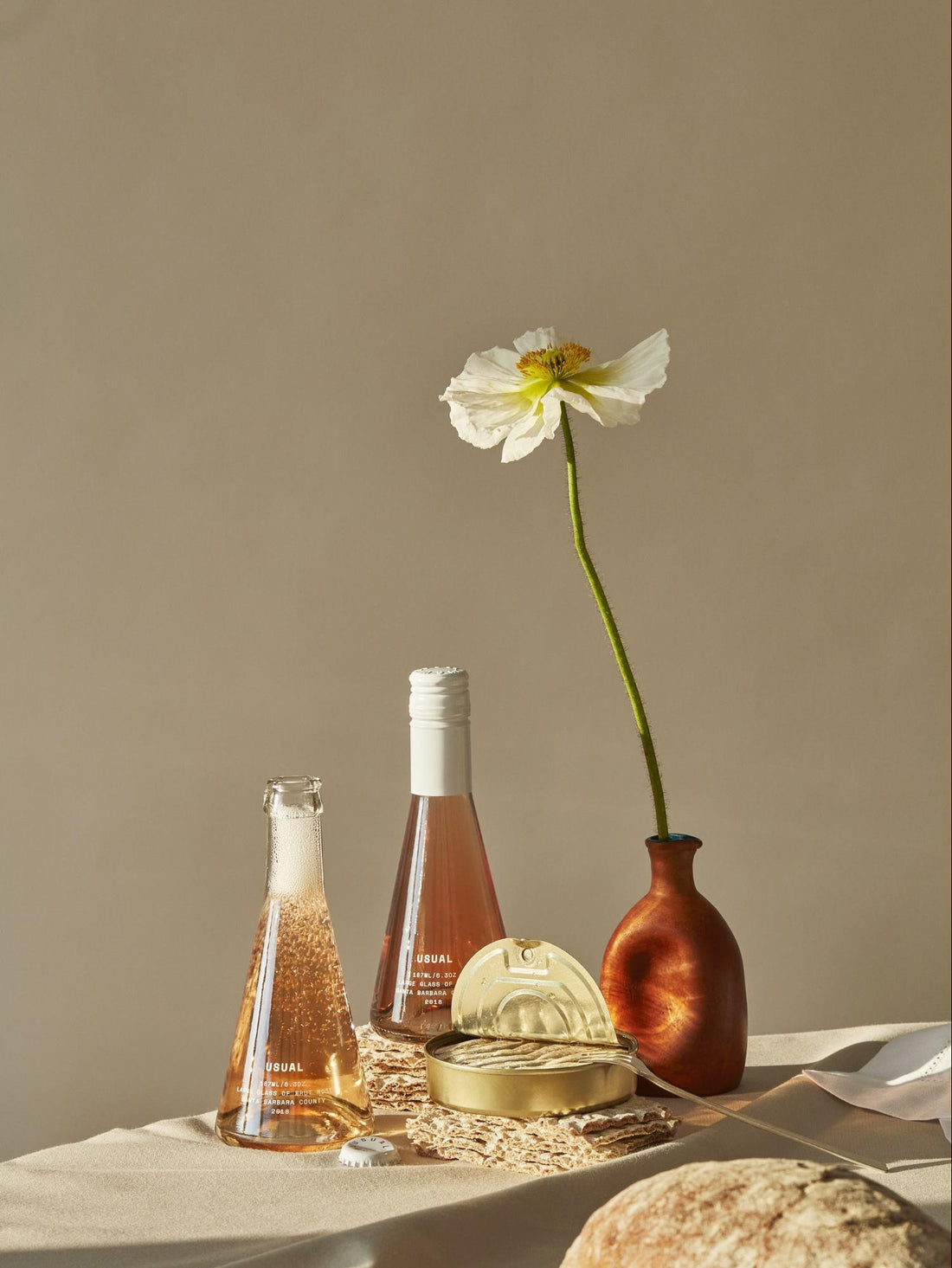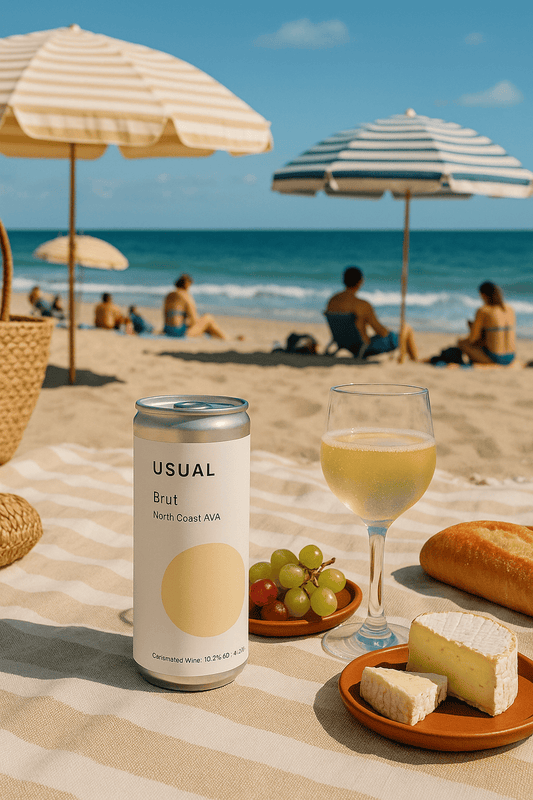
Keto Friendly Wine: Understanding Wine Options on a Keto Diet
McKenzie HaganCan I drink wine on keto? Which wines are keto-friendly? How does alcohol affect ketosis? These are just a few of the impassioned questions you're probably asking yourself now that you've decided to give the keto diet a chance. Or maybe you're just keto-curious and trying to figure out how you could ever get through life without carbs.
Either way, you're a wine lover and the very thought of giving up your favorite drink makes your whole body shudder. (Trust us, we understand.) So, before we move along any further, let's first get our bearings and offer a quick rundown of what going keto actually means. Then, we can get to all those questions that are still swimming around in your head.
What Is the Keto Diet?
The ketogenic diet (also known simply as "keto") is a high-fat, moderate-protein, low-carb diet that transitions the body into ketosis — a metabolic state of burning fats instead of glucose (sugar) into energy.
As a result of this increased fat-burning, those who follow a keto diet often cite health benefits including weight loss and increased energy. You'll hear keto dieters talk about calculating and counting their daily macronutrients (fat, protein, and carbs) to ensure they stay within their limits necessary for ketosis.
While the keto diet has been called a fad diet, it's certainly worth lowering your sugar intake even if you don't follow such a strict regimen. After all, the average person consumes 17 teaspoons of sugar every day, resulting in a host of sugar-related diseases, such as diabetes, heart disease, and obesity.
Can You Drink Wine on Keto?
Yes, you can drink wine while following a keto meal plan. (Go ahead. We'll wait as you let out that enormous sigh of relief.) However, before you start pouring that second glass of vino, keep in mind that drinking wine on the ketogenic diet requires some serious commitment.
You must understand that there is no such thing as completely sugar-free wine. Alcohol is the byproduct of the fermentation process in winemaking, so without sugar, there is no wine. That said, the amount of residual sugar will vary greatly depending on the type of wine it is. And fortunately, there are plenty of keto-friendly wine options.
Which Wines Are Keto-Friendly?

Dry wines have little sugar left after fermentation, which is why they don't taste sweet. These low sugar levels mean they're low in carbs. Some examples of low-carb wines would be dry sparkling wines or Champagne that are labeled “brut," "extra brut," "brut nature," or "zero brut."
Meanwhile, sweet wines such as Zinfandel, Moscato, Port, and late-harvest Rieslings have the highest sugar content, so be sure to steer clear of those.
It's important to note that just because a wine is fruity doesn't automatically mean it's sweet or high in sugar. Dry wine simply means that there are little or no residual sugars. Also, the amount of sugar in wine isn't directly correlated to its color — there are both sweet and dry red wines, white wines, and rosé wines.
How Much Sugar Is in Wine?
The amount of sugar in wine varies not only based on the type of wine it is but also on who's making it. Winemakers can alter the sweetness of wine in a variety of ways. They could halt the fermentation process so that more residual sugars are left in the finished product. They could also add sugars — not to mention a host of other undisclosed additives — that'll make you think twice before pouring yourself a glass. Here are some examples of the sugar content in popular types of wine:
- Dry red wines: Favorites such as Pinot Noir, Merlot, and Cabernet Sauvignon generally contain between 3-4 grams of sugar per glass.
- Dry white wines: Popular choices like Chardonnay, Pinot Grigio, Pinot Blanc, and Sauvignon Blanc typically range from 2.5-3.5 grams of sugar per serving.
- Brut wines and Champagne: Whether sparkling or still, most brut has fewer than 3 grams of sugar per serving. Usual Wines sparkling brut has 0 grams of sugar.
What's the Best Way to Choose Keto Wine?
As mentioned, dry wine is the best option on keto. Be it red, white, or rosé, you want wine that has the least amount of residual sugars. A good rule of thumb for choosing keto-friendly wine is to look for bottles that contain less than 10 grams of sugar. However, nutrition information isn't typically included on wine bottles or restaurant menus, so you'll have to do your own sleuthing. (Or you could just keep reading. We're here for you.)
One surefire way to reduce your risk of consuming hidden sugars is to avoid cheap, low-quality wine producers. Many commercial brands use added sugar (as well as added sulfites and other unwanted ingredients) to compensate for the lack of quality.
Instead of going mainstream, opt for wines that are made using Old World practices and don’t rely on additives. Also, look for wines that have "no added sugar" on the label so you have a better chance of keeping your carb count down.
Usual Wines sources grapes from small, sustainably farmed winemakers who favor traditional winemaking techniques. Plus, none of these wines have any added sugars or additives.
It's also worth checking out biodynamic wines, which sometimes have lower naturally occurring sugars and certainly no synthetic ingredients. In general, you'll want to avoid non-keto wines such as sangria, dessert wines, wine coolers, and any other sugary wines that aren't dry.
How Does Alcohol Affect Ketosis?

Alcohol contains carbs, and carbs affect ketosis. If your carb intake is high, then you won't be able to burn fat instead of carbs. Conversely, if your carb count is low, then you have a better chance of achieving ketosis.
The keto diet also changes how alcohol affects your body. Once you're in ketosis, your body will have a much lower alcohol tolerance. Why? Because when you consume carbohydrates, it creates a bit of a buffer for your body when breaking down alcohol. But if you remove that cushion by depleting your body's storage of carbs, alcohol strikes your system faster and stronger.
Even if you're just having a couple of glasses of wine, your body will process any amount of alcohol much faster, and you’ll likely feel the effects sooner. You may even end up with a hangover. While there isn't a ton of medical data to prove it, there is plenty of anecdotal evidence that suggests wine (or any alcoholic drink) with higher sugar content can worsen a hangover.
It's Possible to Enjoy Keto Wine While Staying Low-Carb
When you're ditching carbs, lowering your sugar intake, and trying to live a healthier lifestyle, oftentimes one of the first things to go is drinking alcohol. But while you might be saying goodbye to donuts, chips, and sugar-filled margaritas on the keto diet, you can still enjoy a glass of wine and stay in ketosis. you can still relish a glass of wine with mindful attention to the carbs in wine, allowing you to stay in ketosis.
The key is to keep your alcohol consumption in check and choose dry, low-carb wines that won't send your blood sugar soaring. So go ahead and get yourself a Usual Wines mixed pack featuring red, brut bubbly, and dry rosé. You won’t have to worry about kicking yourself out of ketosis, and your taste buds and macros will thank you.








